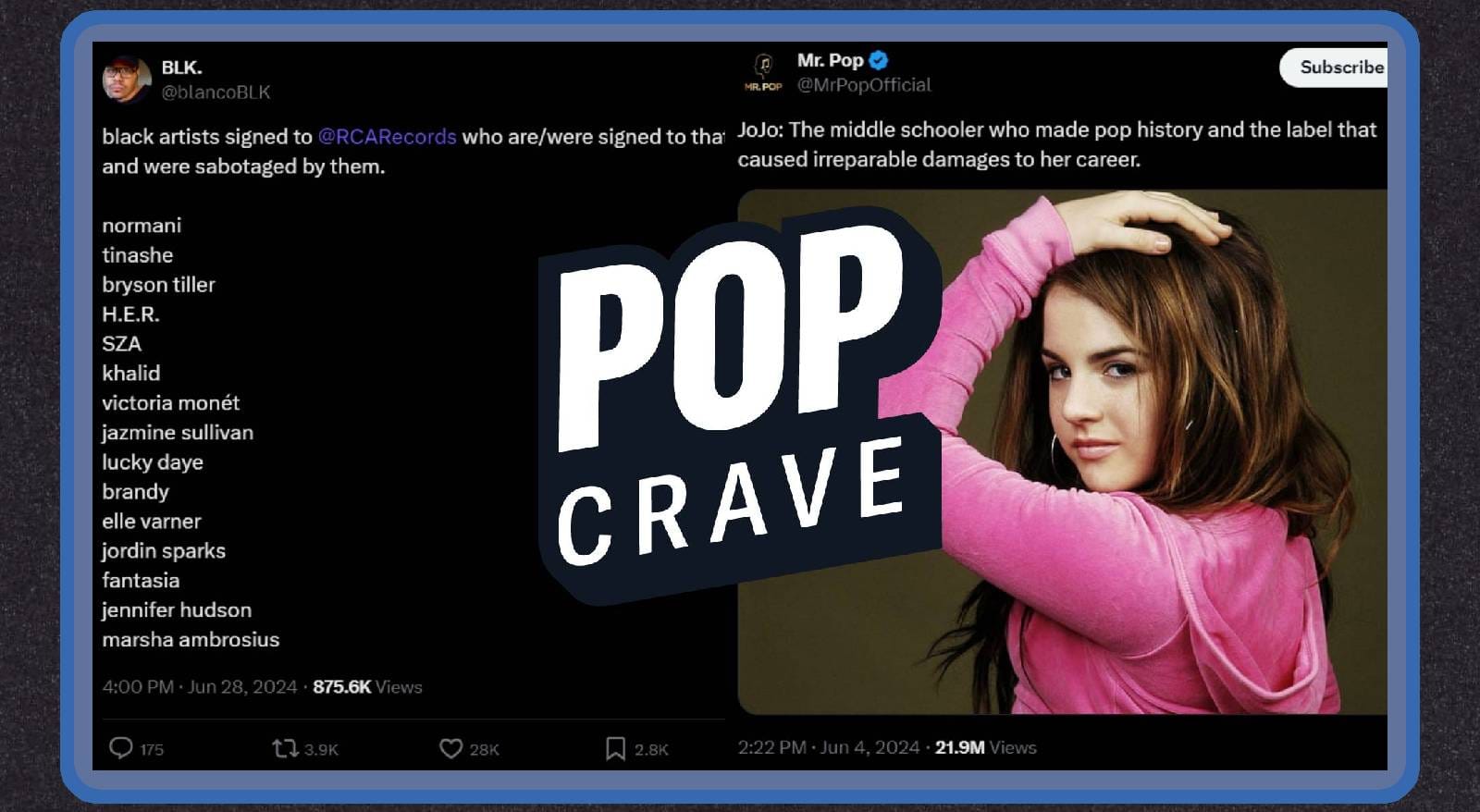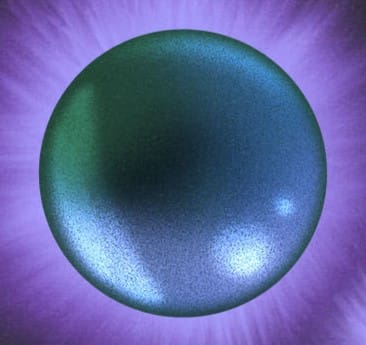Music Twitter has its own version of the Zynternet — and it sucks
On Nusic Twitter, Pop Crave is their Barstool Randos tweet like record execs. And gambling is the engine of this new bastard subculture.

Technology blogger Max Read recently coined the term "Zynternet" to describe an emerging internet subculture that sauntered into daylight last month via the viral Hawk Tuah meme. Read's entire article is worth reading to appreciate the full dimensions of his thesis, but the below passage is a succinct encapsulation of what he's talking about:
You could probably communicate the basic contours of this community simply by calling it “Frat Internet” or “Barstool Internet” or “Dumbass Parlay Bet Internet” or “Internet Made Up Of Guys Who Send Annoying Whiny Replies to AOC Or Whoever And When You Click On Their Profiles It’s Like 1000s Of Retweets Of Stories About The LSU Football Program.”
Read situates the Zynternet somewhere between "sports internet," "hustle internet," and "reactionary internet," and lists their primary interests as: "college sports, gambling, light domestic beers, and Zyn nicotine pouches." If you spend any amount of time online, specifically X (and I'm using Elon Musk's moniker to distinguish between Twitter, because I do think the Zynternet is one of the only novel cultural phenomena X has meaningfully facilitated) or the brain-rotting chasm that is the Instagram Reels algorithm, then you've surely encountered one or many of these types of people and the media entities they love (Barstool, Call Her Daddy, etc.)
Fortunately, as someone who's so uninterested in Zynternet pastimes that my feeds don't even bother serving me football content, I really only interact with this archetype from afar. However, Read's classification of this paradigm made me realize that the side of the internet I do exist on, what many have called "Music Twitter," which is adjacent to "Media Twitter," and I suppose, for lack of a better analog to "reactionary internet," "Woke Twitter," has given birth to a similar bastard subculture that I'll call — for the purposes of this article only; I do not think this is a clever, punny name like Zynternet, but I need a placeholder term to make my point — Nusic Twitter.
Nusic Twitter doesn't actually have anything to do with nu-metal. Although, like nu-metal, Nusic Twitter is ugly, inscrutable, and home to some of the most irritating humans on earth. I call this realm of the internet Nusic Twitter because it's everything I go to regular Music Twitter for — news about music, new music, and Twitter, the social platform — squished into one, while simultaneously serving none of those functions. Nusic Twitter: it sounds like that thing you recognize fondly, but it actually fucking sucks and is in fact ruining your digital experience.
Whereas the Zynternet can be most easily personified by a crude, Barstool-brained moron who displays little respect for the integrity of the sport they follow, the average Nusic Twitter user is a specific breed of pop music stan who has a similarly transactional relationship with their favorite artist. Like the Zynternet, the presence of these stans has seemed to grow in magnitude since Musk's takeover of Twitter, which has changed the way people use the app and filled it with clout-chasing hucksters trying to earn commissions from Musk's payout system. The app's overall tenor since that shift has become more nakedly hungry for engagement, and Nusic Twitter feels like the preferred domain for pop stans who used to live under the Music Twitter banner, but have now built a space where their data-driven fandom, toxic parasociality, and thirst for validation can go unchecked.
Pop Crave, the pop culture "news wire" account that aggregates uncredited pop ephemera, is Nusic Twitter's main media hub and also its most recognizable export, making it the Barstool of this world. Pop Crave's most avid followers, I.E. the main demographic of Nusic Twitter, are people who don't read music journalism but have the Metacritic page for their favorite artist bookmarked. They think they have the authority to make grandiose claims about an artist's career based on unattributed @chartdata tweets. People who, if they're not black and/or gay themselves, have co-opted the language of those identity groups to speak about their fave pop girlies in a specific cadence that's both inappropriately flattering and reductively condescending. And people who've been empowered, by years of terminal online-ness on a 'net where verifiable information is weighted equally with unsubstantiated gossip, to believe that every pop artist who's never seen Taylor Swift levels of success was somehow "sabotaged" on their way to achieving unprecedented fame.
JoJo: The middle schooler who made pop history and the label that caused irreparable damages to her career. pic.twitter.com/QZWMmyG1eT
— Mr. Pop (@MrPopOfficial) June 4, 2024
The common denominator between the Zynternet and Nusic Twitter is that the engine of these communities is gambling. For the Zynternet, it's the exponential rise in legal sports gambling, and for Nusic Twitter it's these stans' increased obsession with streaming counts and Billboard chart placement; a numerical dogma that, itself, manifests as a strange form of gambling. The currency of Nusic Twitter isn't literal money (yet), but these people are animated to such a degree that you might think they're actually earning a payout if their favorite artist "wins" their imaginary competition with another artist on the Hot 100. Chart horseracing isn't new at all (look at the Blur Vs. Oasis battle of 1995), but it's only recently become so dominant in the culture of music fandom that, on Nusic Twitter, it actually supersedes other discussion topics one might go to Music Twitter for. Discourse such as, "Is This Song Good?" and "How Was Last Night's Concert?"
Similar to how online sports betting has convinced the average brew pub dumbass that they're an aspiring Vegas kingpin, Nusic Twitter's obsession with chart metrics, coupled with the false sense of intimacy they feel toward the celebrities on their screens, has convinced thousands of civilian dilettantes that they're major label A&R's. A recent example of such Nusic Twitter behavior was addressed by music writer Gerrick Kennedy, who called out a viral tweet by @blancoBLK listing "black artists signed to @RCARecords who are/were signed to that label and were sabotaged by them." The list included big, but not huge, pop singers like Normani and Tinashe, giant stars like SZA and Bryson Tiller, and forgotten one-timers like 2007 American Idol champion Jordin Sparks.
Hi. Just an OG music journalist here that spent many years reporting on labels, including RCA. This is untrue. You are entitled to your opinion, but you don’t have an actual clue. This is also very disrespectful to a a lot of talented Black execs that worked very hard here. https://t.co/8JmA8NC1et
— Gerrick Kennedy (@GerrickKennedy) June 29, 2024
There was no information in the thread explaining how the century-old RCA Records has failed these particular artists, except that it's "clear as day that RCA doesn't know what the fuck to do with their black artists." Nothing about @blancoBLK's 1,300-follower account, where he describes himself as "a mediocre mash-up producer," a "graphic designer," and a "published poet," insinuates he has any credibility to speak on the alleged missteps of one of the biggest record labels in music history. Even so, his tweet was liked by 27k people and shared by 3.7k, racking up nearly a million "views" by Twitter's own stats. Speaking as a longtime music writer, that's roughly 20x the engagement I could ever expect to receive from a thoughtfully reported article, which goes to show how widely this type of unverified drivel proliferates online.
Thankfully, Kennedy the journalist took him to task in the quote-tweets, writing that he "spent many years reporting on labels, including RCA," and that @blancoBLK's post is not only baselessly untrue, but also "disrespectful to a lot of talented Black execs that worked very hard here. Kennedy continued: "Hope the engagement was worth it. But … you truly don’t know what the fuck you’re talking about and I wish you people would just remain fans and stop tweeting like music execs because you look so damn stupid making these things up."
Of course, Kennedy's response earned a mere fraction of the engagement of the tweet he criticized.
the miss treatment bebe rexha has gone through in the music industry over the years. a thread; pic.twitter.com/6GSdUr98bN
— artan (@BebesSatellite) July 2, 2024
A post on Nusic Twitter might, at first glance, scan as some kind of materialist criticism, albeit written in the tone of someone who's furiously tweeting about a bad ref call. But that's not really the case. Denizens of Nusic Twitter are as aggrieved by the hyper-capitalist music industry as they are deferential to it. They paradoxically hate the big labels and blame them for their favorite artist's shortcomings, but also quantify their favorite artist's success by the very metrics the industry uses to discard artists who don't meet their bottom line (units moved, streams totaled, tickets sold). On Nusic Twitter, the quality of the artist's music has no bearing on whether or not their career is/was "successful." Instead, a perceived floundering is always attributed to a failure on the label's part to properly invest or market an artist, or some other industry machination that's kneecapped the success they would've been guaranteed if the correct cards were played.
It's kind of like the way your dad thinks he could coach the Giants better than the guy getting paid a gazillion dollars to do so, but it's actually more cynical than that. In the same way college football fans of the Zynternet are more concerned with how the game's outcome affects the scoring of their fantasy gambling team than the real-life football team's season, these stans are more invested in the personal gratification of supporting the "winning" pop star, and how that affects their standing in the fictional game of popstar Risk they've invented, than the actual art being produced.
brat - 15.4m
— will (@wilIranda) June 29, 2024
e n é que só uma existe fora do twitter mesmopic.twitter.com/C5l8Y3NVat https://t.co/sLlnmmrKFM
The gamification of the charts has had a corrosive effect on stan communities who now spend more energy boosting the market value of their favorite artists than talking about their actual music. The Nusic Twitter-ification will only balloon as the currency of stan communities shift from Spotify Monthly Listener counts and Billboard chart placements to actual money. Billboard recently rolled out a "contest" (see: lottery) that's monetized the Hot 100 into a form of gambling, where fans can speculatively bet on which songs they think will dominate in a given week. FanDuel's co-founder launched a Fantasy Record Label game with monetary prizes. As we've seen with major league sports tossing out their last vestige of decorum and selling their souls to online gambling companies, this will surely encourage stan communities to become even more overtly capitalistic, and make the way they behave online even more deranged now that there'll be actual monetary stakes at play.
All of this will make Nusic Twitter's presence impede on Music Twitter, and make a portion of the internet that, for all its flaws, I still consider a fun, valuable place to read, learn, and chat about music, a much less appetizing experience. Yes, my fave is being sabotaged.

